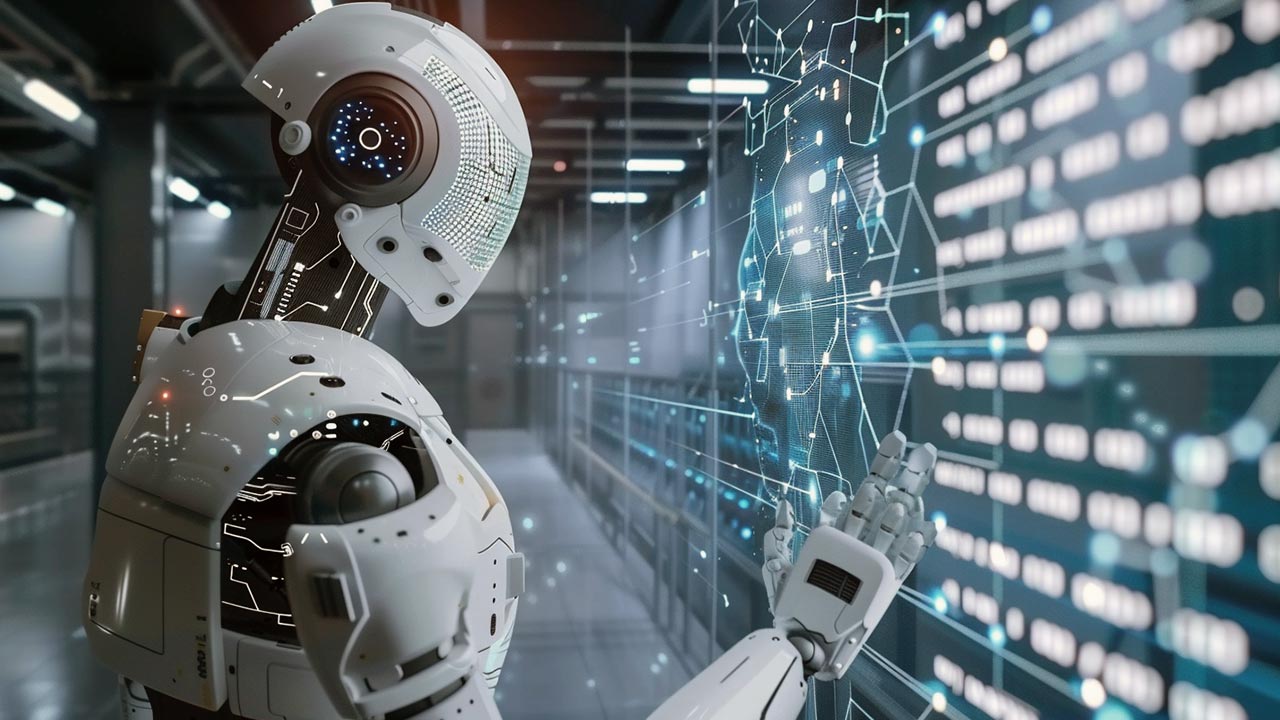What is an AI Engineer?
AI Engineer, a highly specialized professional who bridges the gap between the realms of computer science, data science, and engineering. But what exactly does an AI Engineer do, and why is this role so critical in today’s digital economy?
This quick read article will delve into the world of AI Engineering, exploring the key responsibilities, essential skills, and the career trajectory of an AI Engineer. Whether you’re a tech enthusiast looking to break into the field or a seasoned professional aiming to upskill, this comprehensive guide will provide you with valuable insights into the dynamic role of an AI Engineer.
What you’ll learn:
- The core responsibilities of an AI Engineer
- The skills and qualifications needed to succeed in this role
- The tools and technologies that AI Engineers use
- Career prospects and salary expectations
- How AI Engineers are driving innovation across industries
Table of Contents
- Introduction to AI Engineering
- Core Responsibilities of an AI Engineer
- Essential Skills and Qualifications
- Tools and Technologies Used by AI Engineers
- Career Prospects and Salary Expectations
- Top 5 Frequently Asked Questions
- Final Thoughts
- Sources
Introduction to AI Engineering
Artificial Intelligence Engineering is an interdisciplinary field that combines computer science, machine learning, data science, and engineering principles to create intelligent systems. AI Engineers are at the forefront of technological innovation, designing and developing systems that can learn from data, make decisions, and automate complex tasks. This role is pivotal in industries ranging from finance to healthcare, where AI-driven solutions are driving efficiency, accuracy, and innovation.
Core Responsibilities of an AI Engineer
Developing AI Models
One of the primary responsibilities of an AI Engineer is to develop AI models that can perform specific tasks, such as image recognition, natural language processing, or predictive analytics. This involves working with large datasets, selecting appropriate algorithms, and fine-tuning models to optimize their performance.
Deploying AI Systems
AI Engineers are also responsible for deploying AI systems in real-world environments. This includes integrating AI models into existing software applications, ensuring scalability, and monitoring system performance. Deployment often requires collaboration with DevOps teams to ensure seamless integration and operation.
Collaborating Across Teams
AI Engineers frequently collaborate with data scientists, software developers, and business stakeholders to align AI solutions with organizational goals. This cross-functional collaboration is essential for understanding the business context, defining project requirements, and ensuring that AI solutions deliver tangible value.
Essential Skills and Qualifications
Technical Skills
To excel as an AI Engineer, proficiency in programming languages like Python, Java, and C++ is crucial. Familiarity with machine learning frameworks such as TensorFlow, PyTorch, and Keras is also essential. AI Engineers must be adept at data manipulation, statistical analysis, and algorithm design.
Soft Skills
Beyond technical expertise, AI Engineers must possess strong problem-solving skills, creativity, and the ability to work collaboratively. Effective communication is key, as AI Engineers often need to explain complex technical concepts to non-technical stakeholders.
Educational Background
A solid foundation in computer science, mathematics, or a related field is typically required to become an AI Engineer. Many professionals also pursue advanced degrees in AI, machine learning, or data science to deepen their expertise and enhance their career prospects.
Tools and Technologies Used by AI Engineers
Programming Languages
Python is the most popular language among AI Engineers due to its versatility and extensive libraries. Java and C++ are also commonly used, especially in high-performance applications.
Frameworks and Libraries
Frameworks like TensorFlow, PyTorch, and Keras are essential for building and training AI models. These tools provide pre-built functions and algorithms, making it easier to develop complex AI systems.
Cloud Platforms
AI Engineers often use cloud platforms like AWS, Google Cloud, and Microsoft Azure to deploy AI models and manage large datasets. These platforms offer scalable resources and advanced tools for AI development and deployment.
Career Prospects and Salary Expectations
The demand for AI Engineers is growing rapidly, with opportunities in various sectors such as finance, healthcare, and technology. According to recent reports, the average salary for an AI Engineer in the United States ranges from $110,000 to $150,000 per year, with experienced professionals earning even higher salaries. The field offers strong career growth potential, with opportunities to advance into senior roles or specialize in areas like deep learning or natural language processing.
Top 5 Frequently Asked Questions
Final Thoughts
AI Engineering is a dynamic and rapidly evolving field that plays a crucial role in driving innovation across industries. As AI continues to advance, the demand for skilled AI Engineers will only increase, offering exciting career opportunities for those with the right skills and expertise. The most important takeaway from this article is that AI Engineers are not just developers; they are innovators who are shaping the future of technology. By mastering the technical and soft skills required for this role, you can position yourself at the forefront of this exciting field.









Leave A Comment